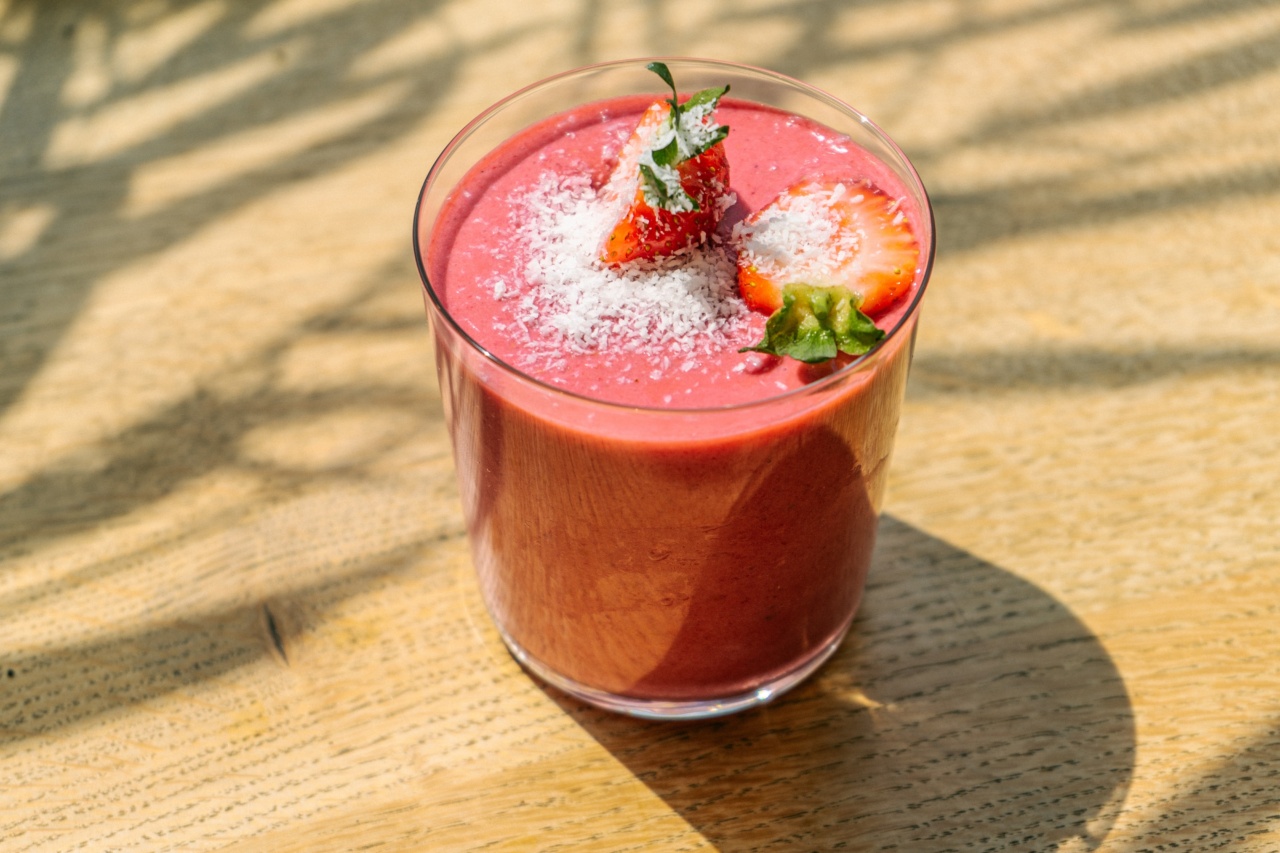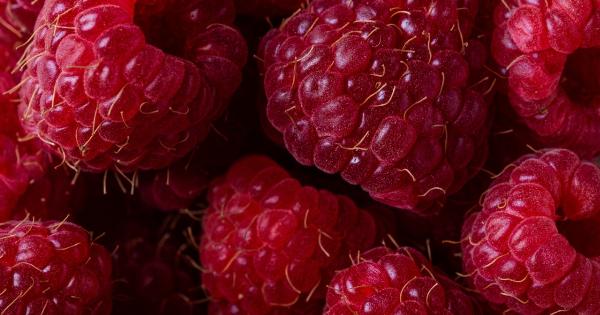Gut health is a crucial aspect of overall well-being. In recent years, a lot of research has been conducted on the importance of maintaining good gut health.
Proper digestion and absorption of nutrients from food, a healthy immune system and a general sense of well-being all depend on gut health.
One of the most effective ways to improve gut health is to eat a healthy, balanced diet that includes lots of fresh fruits and vegetables.
When it comes to fruits, one that stands out for its gut-healing properties is the humble red fruit – the raspberry.
What are raspberries?
Raspberries are a type of small fruit that belong to the rose family. They have a bright red color and a sweet, slightly tart taste. They grow in the wild in many parts of the world including North America, Europe, and Asia.
Raspberries are a popular ingredient in many different types of food and beverages, including desserts, jams, jellies, and smoothies.
The Nutritional Benefits of Raspberries
Raspberries are not only tasty, but they are also packed with health benefits. They are low in calories and high in nutritional value. Here are some of the key nutritional benefits of raspberries:.
1. High in Fiber
Raspberries are an excellent source of dietary fiber. One cup of raspberries contains 8 grams of fiber, which is about a third of the recommended daily intake.
Fiber is essential for maintaining good gut health as it promotes regular bowel movements and helps to prevent constipation. It also helps to keep you feeling full, which can aid in weight loss.
2. Rich in Vitamins and Minerals
Raspberries are a rich source of vitamins and minerals, including vitamin C, vitamin K, manganese, and potassium. Vitamin C is important for maintaining a healthy immune system, while vitamin K is necessary for blood clotting.
Manganese is essential for healthy bone development, and potassium is important for regulating blood pressure.
3. Antioxidant Properties
Raspberries are a rich source of antioxidants, which help to protect your cells from damage caused by free radicals. Free radicals are unstable molecules that can cause oxidative stress, which is linked to many chronic diseases.
The antioxidants in raspberries can help to reduce the risk of these diseases by neutralizing free radicals.
4. Anti-Inflammatory Properties
The compounds present in raspberries such as quercetin, kaempferol and anthocyanins possess anti-inflammatory properties.
They help to reduce inflammation in the body by inhibiting the production of cytokines and prostaglandins which are responsible for inflammation in the body. Consumption of raspberries can lead to the reduction of inflammation in the gut thereby improving gut health.
The Gut-Healing Properties of Raspberries
Besides being a low-calorie snack and a good source of vitamins and minerals, raspberries also have several gut-healing properties that make them an ideal food for people with gut issues. Here’s why:.
1. Rich in Polyphenols
Polyphenols are a group of compounds that have been shown to have beneficial effects on gut health. Raspberries are a rich source of polyphenols, especially anthocyanins which give it the bright red color.
Studies have shown that anthocyanins can help to reduce inflammation in the gut and protect against the development of gut disorders.
2. Prebiotic Properties
Raspberries contain a type of fiber known as prebiotics. Prebiotics act as food for the good bacteria in your gut, helping them to grow and thrive.
By promoting the growth of beneficial bacteria, prebiotics help to support a healthy gut microbiome, which is essential for good gut health.
3. Protection Against Colon Cancer
Raspberries contain compounds that have been shown to have anti-cancer properties. Recent studies have shown that these compounds can help to protect against colon cancer, one of the most common types of cancer worldwide.
They do this by inhibiting the growth of cancer cells and promoting the death of these cells through a process called apoptosis.
How to Incorporate Raspberries into Your Diet
Raspberries are delicious and versatile, making them easy to incorporate into your diet. Here are some ideas:.
1. Fresh Raspberries
Eating raspberries fresh is a great way to enjoy their flavor and reap their health benefits. Rinse them thoroughly under cold water and add them to your breakfast cereal or oatmeal, or eat them as a snack throughout the day.
2. Raspberry Smoothies
You can also add raspberries to smoothies to make them more nutritious and delicious. Simply blend some fresh raspberries, spinaches and bananas to make a smoothie that is packed with fiber, antioxidants, and other nutrients.
3. Raspberry Jams and Jellies
If you love sweet spreads like jam and jelly, why not try making your raspberry jam or jelly? These are easy to make and can be enjoyed on toast, crackers, or even as a topping on pancakes or waffles.
4. Raspberry Desserts
Raspberries are a popular ingredient in desserts like cakes and pies. You can try making a raspberry cheesecake, raspberry tart or simply add a handful of raspberries to your regular fruit salad for a dash of color and sweetness.
Conclusion
Raspberries are a superfood that is not only delicious but also packed with health benefits. They are low in calories and rich in fiber, vitamins, and minerals.
Raspberries have several gut-healing properties like providing prebiotics, quelling inflammation and rich in polyphenols that can help to protect against the development of gut disorders. Adding raspberries to your diet is an easy, tasty, and effective way to support good gut health.





























